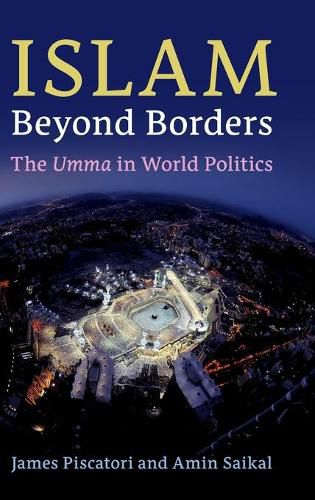Readings Newsletter
Become a Readings Member to make your shopping experience even easier.
Sign in or sign up for free!
You’re not far away from qualifying for FREE standard shipping within Australia
You’ve qualified for FREE standard shipping within Australia
The cart is loading…






Assuming a central place in Muslim life, the Qur'an speaks of one community of the faith, the umma. This unity of the faithful is recognised as the default aspiration of the believer, and in the modern era, intellectuals and political leaders have often vied both to define, and to lead it. Based on case studies of actors such as Saudi Arabia, Iran, and ISIS, James Piscatori and Amin Saikal consider how some appeals to pan-Islam prove useful, yet other attempts at cross-border institutionalisation including the Sunni Caliphate or the modern Shi'i-inspired Islamic Revolution, founder on political self-interest and sectarian affiliations. Accompanied by a range of scriptural references to examine different interpretations of the umma, Piscatori and Saikal explore why, despite it meaning such widely different things, and its failure to be realised as a concrete project, neither the umma’s popular symbolic appeal nor its influence on a politics of identity has diminished.
$9.00 standard shipping within Australia
FREE standard shipping within Australia for orders over $100.00
Express & International shipping calculated at checkout
Assuming a central place in Muslim life, the Qur'an speaks of one community of the faith, the umma. This unity of the faithful is recognised as the default aspiration of the believer, and in the modern era, intellectuals and political leaders have often vied both to define, and to lead it. Based on case studies of actors such as Saudi Arabia, Iran, and ISIS, James Piscatori and Amin Saikal consider how some appeals to pan-Islam prove useful, yet other attempts at cross-border institutionalisation including the Sunni Caliphate or the modern Shi'i-inspired Islamic Revolution, founder on political self-interest and sectarian affiliations. Accompanied by a range of scriptural references to examine different interpretations of the umma, Piscatori and Saikal explore why, despite it meaning such widely different things, and its failure to be realised as a concrete project, neither the umma’s popular symbolic appeal nor its influence on a politics of identity has diminished.